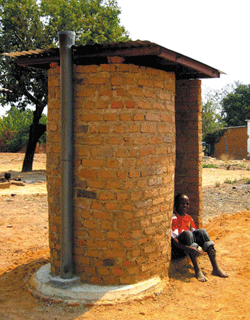
ZIMBABWE is experiencing challenges in the provision of toilets with Matabeleland North being the most affected. VENERANDA LANGA SENIOR REPORTER
The revelations are contained in a recent report by the Zimbabwe National Statistics Agency (Zimstat).
Zimbabwe, with an estimated population of 13 million, is said to have just over three million toilets.
“Information on the type of toilet facility mainly used by households in the country indicated that a sizeable proportion of 24% of the households had no toilet facility at all,” Zimstat report says.
“The proportion of households without any toilet facility was highest in Matabeleland North with 56% and lowest in Harare (less than 1%) and about 33% of the households mainly used flush toilets, 22% Blair toilets and 13% pit latrines.”
Youth Environment and Protection Trust programmes manager Pride Mkono said his organisation was worried about the development as it meant the 24% households were probably engaging in open defecation that could result in the spread of deadly diseases such as cholera and bilharzia.
Mkono said although Harare registered a small percentage of people without toilets, his organisation was worried about early closure of public toilets when night revellers were still out in the streets.
“We are worried about the rate of public defecation and urination at street corners, especially along Speke Avenue, Chinhoyi Street and Harare Street,” he said.
- Chamisa under fire over US$120K donation
- Mavhunga puts DeMbare into Chibuku quarterfinals
- Pension funds bet on Cabora Bassa oilfields
- Councils defy govt fire tender directive
Keep Reading
“The main culprits are beerhall visitors and street kids.
“The problem has been compounded by public toilets closing by 6pm when the majority of residents are still out.
“Beerhalls and food outlets must be compelled to have public urinaries as some of them do not have such facilities.”
Mkono said most of the public toilets were dirty, flooded with human waste and urine and did not have running water to flush them.
Environmental Management Agency environment education and publicity officer for Mashonaland West, Astas Mabwe, said open defecation removed the aesthetic value of the environment and was also a health time bomb.










